Visiting card of event management | Event Management Design Image
Hello dear guest - Welcome to Neoteric IT . You have come to Neoteric IT for information about Visiting card of event management | Event Management Design Image Today I will conclude this article by discussing Visiting card of event management | Event Management Design Image in detail. Search Google to know more about Visiting card of event management | Event Management Design Image write Visiting card of event management | Event Management Design Image or click here insightflowblog.com for visit. See the page Table of content for know the main topic of this article. Web story and AMP Version
Event management is a complex mix of creativity, organization and strategic planning aimed at bringing people together for a shared experience. From corporate conferences to music festivals, weddings to product launches, event management plays a key role in creating memorable moments that leave a lasting impression on attendees. This article delves into the fascinating world of event management, exploring its key elements, challenges and the art of organizing seamless events.
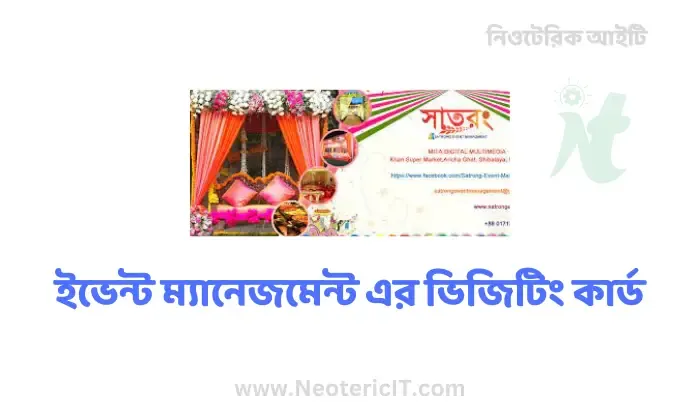
Event Management Business Cards - Event Management Design Images - event management - NeotericIT.com
Event management
Event management encompasses a comprehensive process of conceiving, planning, executing and evaluating events of various scales and purposes. From selecting the right venue and designing a captivating theme to coordinating logistics, managing the budget and ensuring the engagement of the participants, it involves a myriad of tasks. Successful event management requires a combination of strategic thinking, attention to detail and the ability to adapt to unexpected situations.
Also Read: Event Management Business Ideas
Key elements of event management
Pre-Event Planning:
The foundation of any successful event is meticulous planning. This phase involves defining the purpose of the event, the target audience and the desired outcome. Budget allocation, vendor selection, and setting up timelines are important aspects. Event planners must carefully consider factors such as location, date, and duration to ensure optimal attendance and participant convenience.
Place Selection:
Venue selection can significantly affect the overall event experience. Factors such as accessibility, capacity, ambience and facilities must align with the purpose and theme of the event. Event planners must negotiate contracts, manage permits, and manage technical requirements to ensure a seamless event execution.
Theme and Design:
Creating an impressive theme and design adds a distinct identity to the event. From decor and branding to visual elements and aesthetics, the theme sets the tone and evokes emotion among attendees. Effective use of lighting, color schemes and multimedia elements can enhance the atmosphere of the event and leave a lasting impression.
Supply Management:
Logistics coordination involves managing transportation, accommodations, catering, equipment, and technology. Attention to detail is essential to avoid last-minute hiccups that could disrupt the flow of events. Efficient logistics management ensures that both participants and participants have a smooth experience.
Marketing and Promotion:
Effective marketing and promotion strategies are critical to driving attendance and building excitement around the event. Using social media, traditional advertising, influencer partnerships and email campaigns can maximize reach and engagement. The goal is to create a buzz that compels potential attendees to participate.
Participant Engagement:
Keeping participants engaged throughout the event is key to its success. This involves curating engaging content, interactive sessions, workshops, and networking opportunities. Using technology like event apps or virtual reality experiences can increase attendee engagement and provide a personal touch.
Risk Management:
Events are not immune to unexpected challenges, from weather disruptions to technical glitches. Event managers must have contingency plans to deal with potential risks and minimize their impact on the event. Flexibility and adaptability are important characteristics for effective risk management.
Post-Event Evaluation:
Once the event is over, a thorough evaluation helps measure its success against predetermined goals. Gathering feedback from participants, sponsors and stakeholders provides valuable insights for future improvements. Event managers can evaluate what worked well and identify areas for improvement in subsequent events.
Challenges in event management
While the world of event management is rewarding, it also brings its share of challenges. Some common challenges include:
Budget Constraints:
Managing expenses within budget limits while delivering a high-quality experience can be challenging. Unexpected expenses and currency exchange rate fluctuations can complicate budget management.
Logistical complications:
Coordinating various aspects of an event, such as transport, accommodation and technical setup, requires meticulous planning to avoid logistical pitfalls.
Unexpected factors:
External factors such as weather conditions, political situations or health crises (as seen in the COVID-19 pandemic) can affect event planning and execution.
Sponsorship and Funding:
Securing sponsorship and funding for larger events is crucial. Convincing potential sponsors to invest in an event requires effective negotiation and demonstrating the value they will gain from their involvement.
Participant Engagement:
Maintaining attendee engagement throughout an event, especially in an age of constant digital distraction, demands creative strategies and innovative approaches.
What is event management?
Event management refers to the process of planning, organizing, coordinating and executing events, gatherings or events to achieve specific objectives. These events can range from corporate conferences, trade shows and product launches to weddings, parties, festivals and cultural celebrations. Event management involves every aspect of bringing an event to life, from concept and planning to logistics, execution and post-event evaluation.
Functions of Event Management:
The event management job encompasses a wide range of tasks and responsibilities including:
Planning: Defining event objectives, setting budgets and creating timelines.
Venue Selection: Selecting a suitable venue that matches the purpose and theme of the event.
Logistics Management: Coordinating transportation, accommodation, catering, technology and equipment.
Theme and Design: Creating a cohesive and engaging theme that resonates with attendees.
Marketing and Promotion: Creating awareness and excitement through various marketing channels.
Participant Engagement: Designing activities, workshops and interactive sessions to keep participants engaged.
Budgeting and Financial Management: Managing expenditure and ensuring cost-effectiveness.
Risk Management: Identifying and addressing potential risks or challenges that could affect the event.
Coordination: Overseeing all aspects of the event and ensuring smooth execution.
Post-Event Evaluation: Collecting feedback and analyzing the success of the event against predetermined goals.
Why pursue event management business?
Event management business is pursued for various reasons:
Passion: Many individuals are drawn to event management because of their passion for creativity, organization and bringing people together.
Entrepreneurship: Running an event management business offers opportunities for entrepreneurship and creative autonomy.
Diverse Experiences: Each event presents unique challenges and opportunities, ensuring a varied and exciting career.
High Demand: Events are an integral part of various industries, creating a consistent demand for efficient event management services.
Financial Potential: Successful event management businesses can generate substantial revenue through service fees and commissions.
Skills and experience required to start an event management business:
To start an event management business, you will need:
Organizational Skills: Ability to effectively manage multiple tasks, details and timelines.
Creativity: To design unique and memorable event experiences.
Communication: Strong verbal and written communication skills for client interactions and vendor negotiations.
Problem-Solving: Ability to navigate challenges and unexpected situations.
Networking: Building and nurturing relationships with clients, vendors and suppliers.
Budgeting and Financial Management: Skills in budgeting and cost management.
Attention to detail: ensuring every aspect of the event is well-coordinated.
Time Management: Allocating resources and time to different tasks efficiently.
Marketing Skills: Promoting your services and attracting clients.
Experience: Practical experience in planning and managing events can be valuable.
Credibility and Suitability of Event Management as a Career:
Event management is a credible and suitable career option for those who thrive in a dynamic, fast-paced environment and possess the required skills. With the rise of experiential marketing and the growing importance of events in various industries, skilled event managers are in high demand. A successful event management career offers personal satisfaction, financial rewards and opportunities to contribute to memorable experiences.
Starting an event management business:
Starting an event management business involves several steps:
Business Plan: Outline your business concept, services, target market and financial projections.
Legal Formalities: Register your business, obtain necessary licenses and meet legal requirements.
Branding and Marketing: Create a brand identity, develop a website and implement marketing strategies.
Networking: Build relationships with vendors, suppliers and potential clients.
Portfolio Development: Showcase your past event management work to demonstrate your capabilities.
Financial Management: Set up financial systems for tracking invoices, expenses and budgets.
Client Acquisition: Reach out to potential clients, pitch your services and secure contracts
Execution and Delivery: Plan and execute the event as per the client's expectations.
Career Prospects of Event Management in Bangladesh:
In Bangladesh, event management is a growing industry with considerable potential. The country hosts various events ranging from corporate seminars to cultural festivals and weddings. With the growing demand for professionally organized and memorable events, skilled event managers have ample room for improvement. As the economy continues to grow and consumer preferences evolve, event management professionals can expect a promising opportunity in the event and entertainment sector in Bangladesh.
Image of event management
Event Management Design
Visiting card of event management
Event Management Images - Event Management Design Images
Dear friends, in this episode of Neoteric IT , I will discuss with you the picture of event management . Let's see the event management design pictures friends .
Read more: Wedding stage design pictures
.webp)
.webp)
.webp)
.webp)
.webp)
.webp)
.webp)
.webp)
.webp)
.webp)
.webp)
.webp)
Visiting card of event management
Dear friends, in this episode I will discuss with you the visiting card of event management . If you want to do event management business then you need to make cards for yourself or for your brand. So let's see some designs. I have given some examples
.jpeg)
.jpg)
.png)
.jpeg)
.jpg)
.png)
.jpeg)
.jpg)
.jpeg)
.jpg)
.jpeg)
.jpg)
.jpeg)
.jpeg)
Thanks for read the post. You can also read the article in bangla - event-management
You are indeed a valued reader of Neoteric IT. Thank you so much for reading Visiting card of event management | Event Management Design Image article. Please let us know how you feel after reading this article.

 Follow Google News to get the latest Neoteric IT news
Follow Google News to get the latest Neoteric IT news .png)

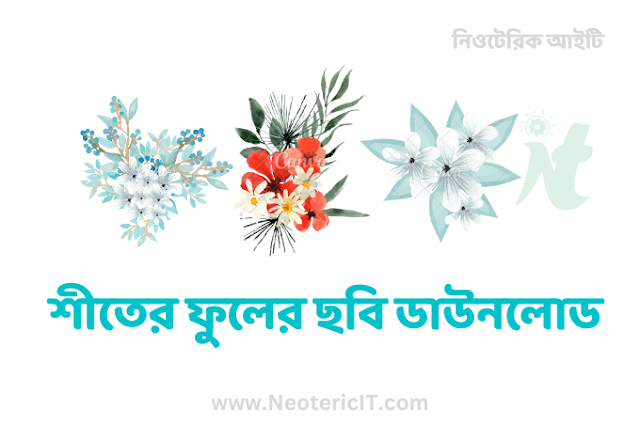
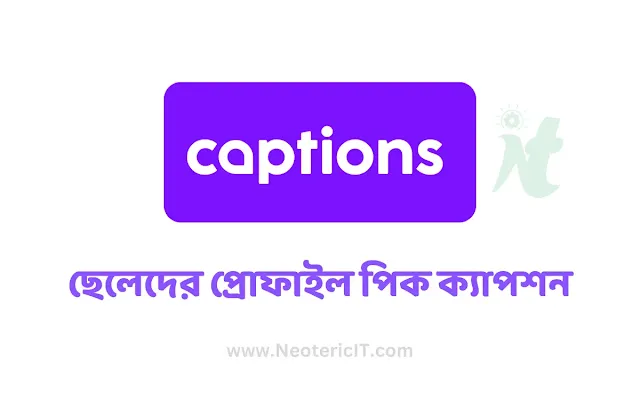
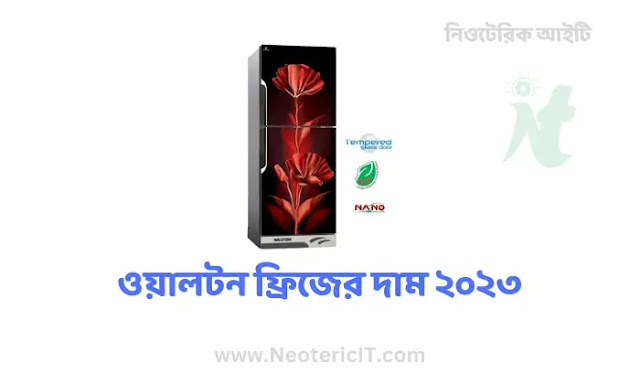
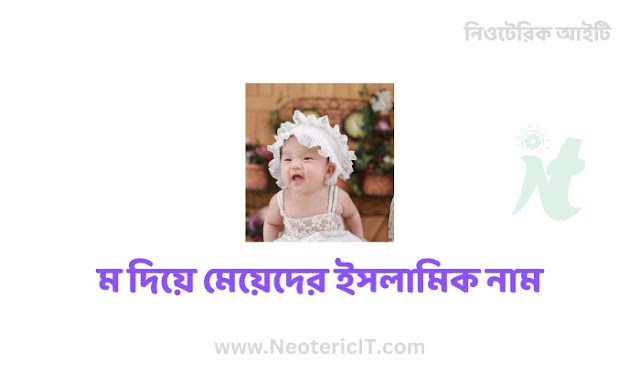
Please comment in accordance with the policy - otherwise your comments will not be accepted.
comment url